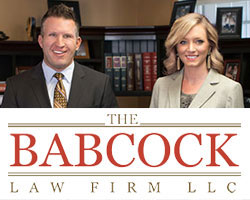Answering questions about websites, content, SEO and branding
Law Practice Today recently published a roundtable on law firm websites. We’re going to jump in here with our own answers to some of their questions, because they were just too good not to discuss…
QUESTION: “Search Engine Optimization (SEO) is a critical part of solid website development. In light of Google’s ever-changing rankings algorithms, what should developers and website owners be the most focused on today with respect to the development of their website?”
Law firms need to focus on using their websites to serve the needs of potential clients. Algorithms will continue to change, but we know Google’s intent is to serve up the content that best answers the question for the searcher. Focus on doing that better than anyone else.
You’ll also want to do this efficiently, so this means having a solid strategy that helps you manage content as a business asset and making sure it has the greatest reach possible.
QUESTION: “Are there any SEO aspects that worked well in the past, but not today?”
Fun question! Here are some of the practices that many SEOs used in the early days but now either have no merit or will get you in trouble:
- Purchasing links. This can get you in deep trouble now, though there was a time when buying links was a legitimate, useful practice. Most people understand now you need to earn your links.
- Overusing keywords in title tags. Fitting maximum keywords into your title tags used to get results you could see quickly. Now you need to write titles that will help your content stand out against competition in the search engine results page to get the click, rather than stuffing them with keywords.
- Overusing keywords in anchor text. Years back, SEOs would put effort into making sure link anchor text (words from which content is linked) included specific keywords. In the end, this produced stilted, unnatural copy, so thankfully this practice has gone by the wayside, too.
- Use of multiple keyword-based microsites. It used to be all about the keywords and how you could claim every possible niche. Now search engines take into account factors more related to brand, like social activity, for example. To develop and run microsites dilutes your brand power and is a waste of marketing resources for law firms.
- Developing links through directory submissions. Before most of your competitors were also listed in a directory, there were big benefits to be gained. While you need to be listed in the main directories for your business area, this is not going to move the needle on SEO much at all.
- Choosing a keyword-rich domain name. Having keywords in the domain name for the sake of SEO simply isn’t important any more. You want to choose the right domain name for building your brand.
QUESTION: “What advice would you give a law firm in terms of how to best convey their brand on their website in a way that will resonate with potential clients?”
A big piece of the puzzle is actually knowing your brand and which aspects resonate with your prospects.
Remember, it’s about them, not you. Too many law firms think immediately about the awards and badges and accomplishments they can display. While those are a big help with credibility and something that needs to be there, you first need to start with the heart of the user.
It’s worth it to collect feedback and reviews from clients so you know what aspects of your brand resonate – then the next step is how to get that across, once you have those answers.
Some qualities we note can resonate across many lawyers’ brands are authority, approachability and success. For authority, you have your badges and industry activities, as well as thought leadership and authority content you produce, contributions to media outlets as an expert, and so on.
For approachability, you can feature client reviews/testimonials, a second language you speak, and use your bio to show your real self. The language you use throughout your site should sound like talking to a friend over coffee. You may be asking a client to trust you with matters that are very personal. They need to make sure they’re comfortable with you. Try video on your site! A well-written email drip series can be used to communicate approachability and expertise at the same time.
To convey success, many lawyers provide information on cases they’ve won. Your practice pages should address your success in your primary areas. You can include stats such as the number of people helped, percentage of cases won, amount of damages recovered, and so on.
QUESTION: “Assuming that a website is well-optimized, what is the one critical thing that website owners should be doing to increase their organic rankings?”
To gain prominence in today’s search engine results pages, law firms need to focus on producing high-quality content and using that content to earn links from websites that have a higher domain authority than their own. To do this, it requires taking an honest look at content quality and then being willing to devote resources to the time-consuming task of letting others know about it.
QUESTION: “Is having more content on a website home page better, or is having less content better? How does a law firm determine what kind of information to put on their home page?”
It is definitely better to have more content on your home page than less, all things equal. This will be helpful for both your brand and search rankings. Here are some questions to consider as you think about your law firm’s website home page:
- Site identity and mission – Is your unique selling proposition apparent?
- Site hierarchy – Is your content organized intuitively?
- Search – Can a visitor find what they need?
- Promotion – Include teasers, content promos, highlights of recent feature stories
- Timely content – recent articles, press mentions, etc.
- Shortcuts to actions or areas on your site that will be of interest to your audiences.
- Are contact details, forms and social media handles easy to find?
- Other – Show the target visitor what they are looking for. Show them what they are not looking for but may need, and show them where to start. Establish credibility and trust, and don’t just blast a prospect with a pop-up immediately.
A prospect should be able to find the following within a three-second scan: What is this site for? What can I do here? What do they have here? Why should I be here – and not somewhere else?
Of course, how all the content is organized on the home page is a huge factor. A skilled designer can keep a clean, aesthetically pleasing law practice home page but still incorporate all requirements.
Do you have questions of your own like this that you’d want to speak with a law firm marketing specialist about?






